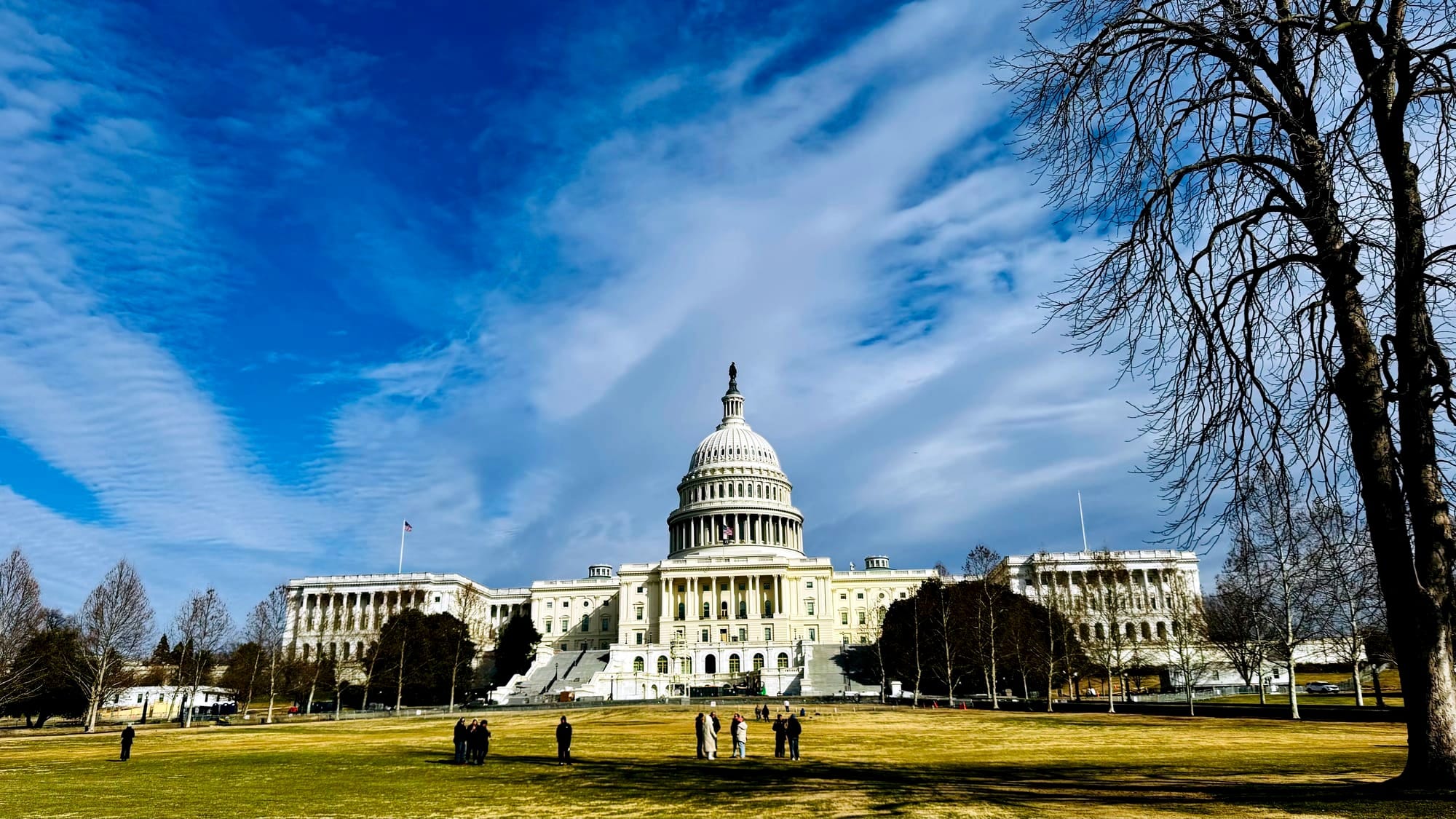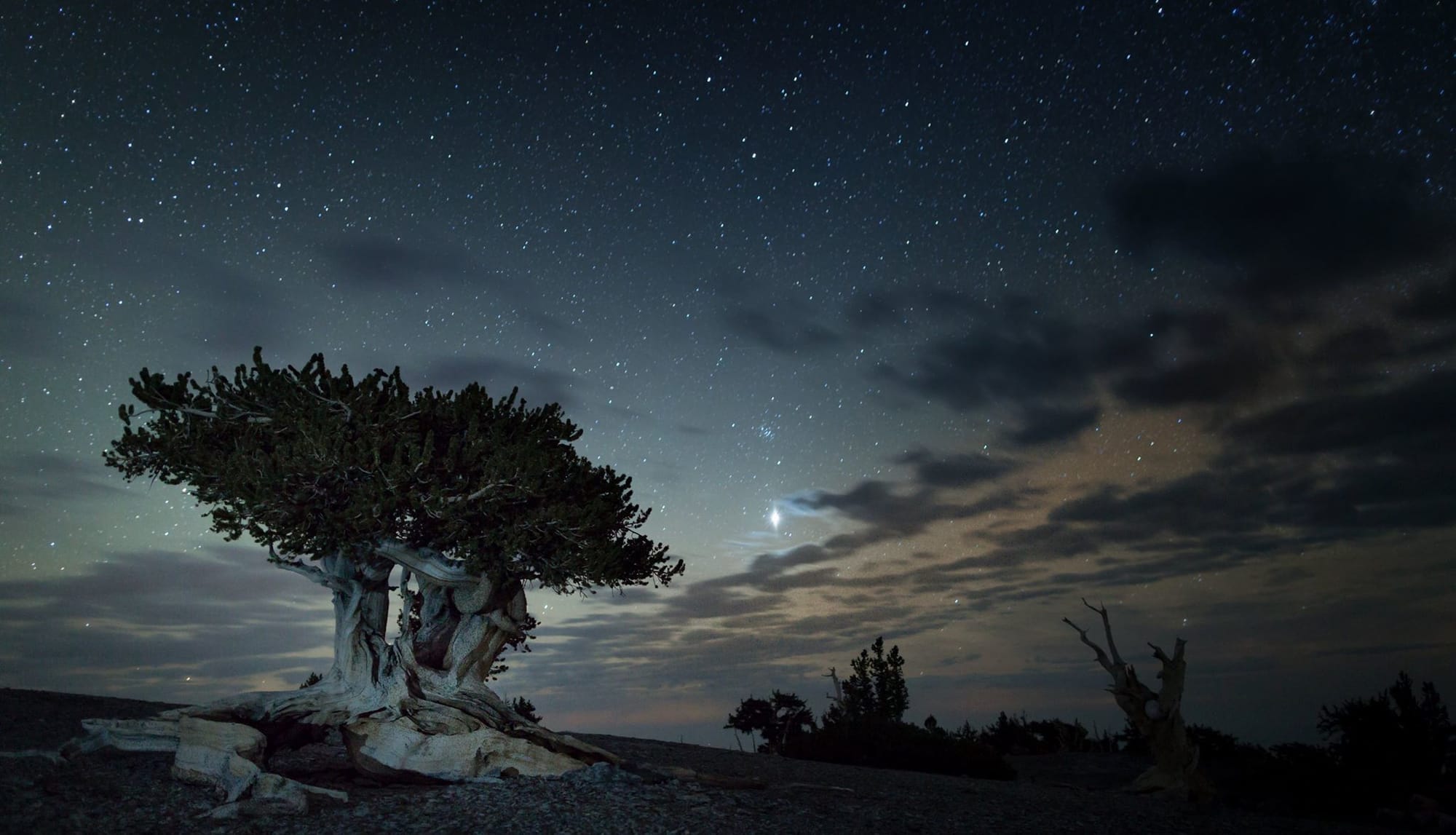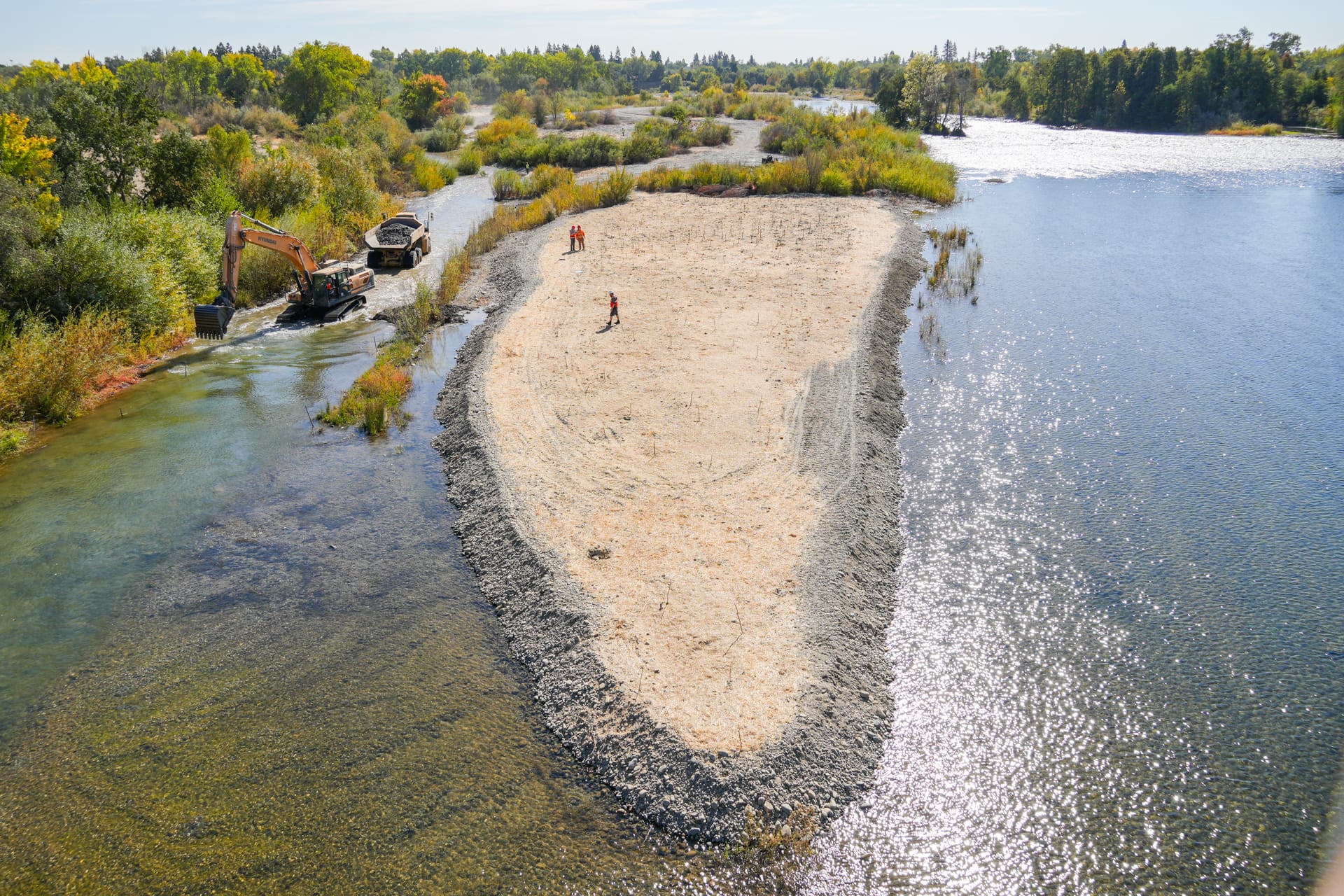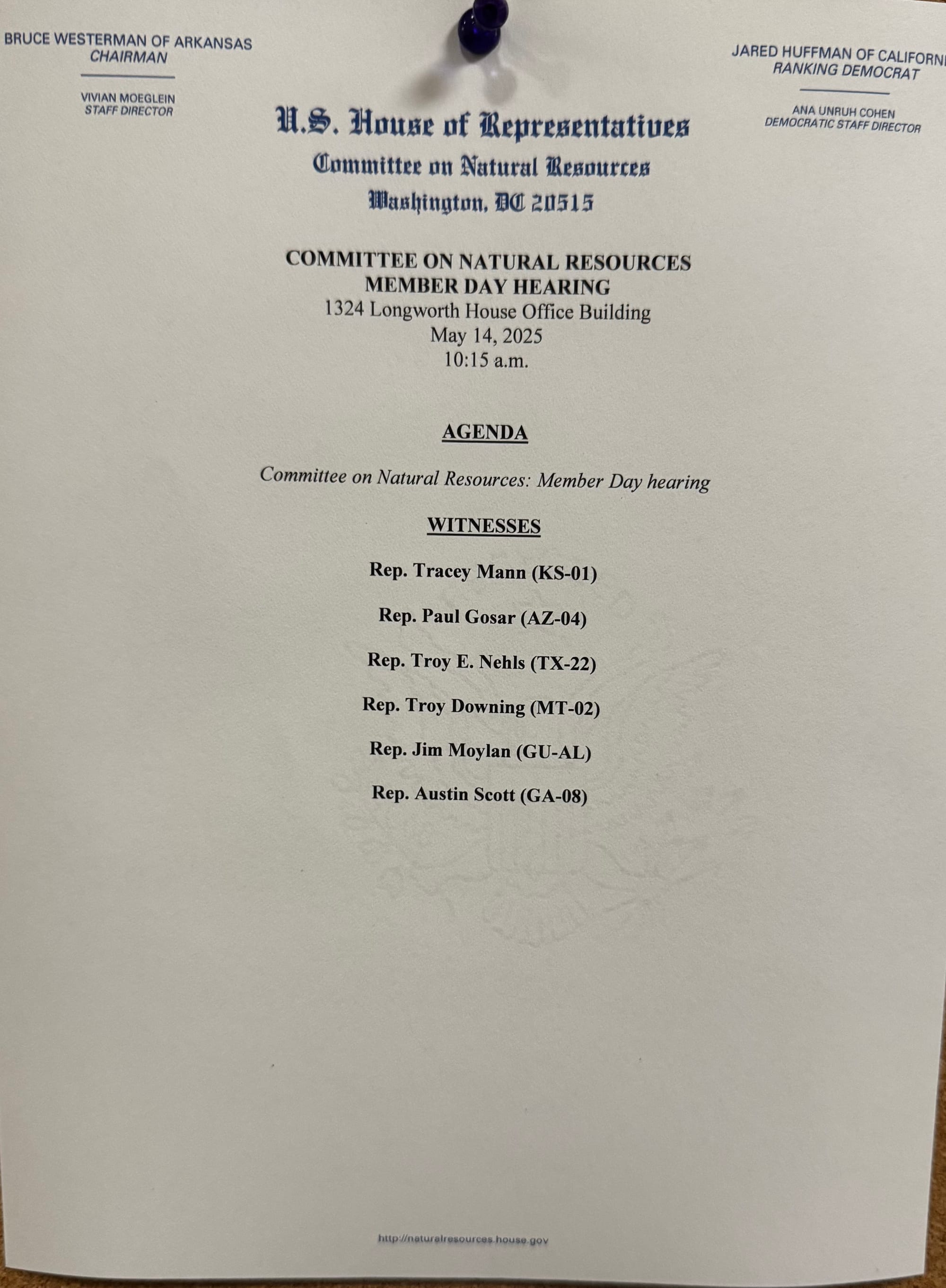Members Day with House Natural Resources
Each Congress, committees set up a day when members of Congress can raise any issues within the committee's jurisdiction. Today it is House Natural Resources, which plays a huge role in Interior.

Today, 14 May 2025, I will be up on Capitol Hill - the Longworth House Office Building - to attend the "Members Day" being held by the U.S. House of Representatives' Committee on Natural Resources (aka "HNR" for House Natural Resources). You can attend in-person or online too! I'll provide regular updates down below, so once this posts, you can just update the page to see the latest.
They've been busy in HNR, so we might hear a lot from other Members of Congress. For example, the Committee already passed their budget reconciliation package, along party lines, and the Chair has plans for more actions in this Congress.
What issues will Members raise today? Here are three things that I'm watching and listening for:
- Selling off our public lands. In a late-night move the day the Committee marked up the draft budget reconciliation bill, Republicans voted to sell off public lands in Utah and Nevada. These are our public lands, the places we go to recreate and relax with our families, public lands for hunting and fishing, drivers of local economies, public lands that provide clean water and clean air we depend on...the list goes on. Whether it's selling off lands of the Bureau of Land Management or proposals to "turn over" our national parks, this is a huge risk to our national treasures.

- Rescinding funding from the Inflation Reduction Act for the National Park Service and the Bureau of Land Management at Interior. This could be tens if not hundreds of millions of dollars of investment that Congress already appropriated for restoring damaged ecosystems, building resilience to climate change and other forms of change we see every day, and - perhaps most visibly - investing in staffing for the the National Park Service. Who will ask about the impacts to their district when people can't enjoy a local park for family vacation because there aren't staff to operate the park? Who will ask about the consequences when increased flooding driven by climate change wipes out neighborhoods but could have been mediated by restored, resilient ecosystems?
- Note that the reconciliation bill also cuts funding from NOAA for climate-ready coasts and resilience and the Forest Service for inventorying the Nation's old growth forests!

- Opening up more public lands to fossil fuel extraction. Even as the rest of the world transitions to new energy sources, the Committee is digging in on fossil fuels. Most of the text of the reconciliation bill covers this, whether it's directing further lease sales, broadening non-competitive oil and gas leases, cutting royalty rates (so the American people get even less return on our resources), propping up coal, or preventing judicial review oil and gas leases or other actions. It even prohibits leases from including mitigation beyond what (often dated) management plans allow! It's further subsidies for a sector that already enjoys over $750 billion a year in subsidies (as of 2022).
- To be clear, fossil energy and mining have been part of Interior's work for over a century, but who is going to ask the Committee why it continues to look backwards rather than toward the future?
There may be other topics that come up, like Chairman Westerman's proposals to change the Endangered Species Act, federal lands along the border, Western water, and much more. We shall see!
Updates
Running updates of the hearings are below a short set of follow-up thoughts.
Follow-up thoughts - The hearing wrapped up a few hours ago and was much shorter than I (and several other folks) anticipated. The very brief summaries below capture, I think, what the few witnesses wanted conveyed. A few thoughts:
- It's concerning when the Chairman speaks only to the "savings" to taxpayers from budget cuts without ever recognizing all the benefits Americans reap from the investments Congress makes in Interior through the budget. The parks, for wildlife, for water, for science, for serving Tribes. Do people realize that the $3.5 billion National Park Service budget alone resulted in $55 billion dollars of economic activity in the U.S. in 2023? Multiply that by the other bureaus of Interior, and add in the value of all the ecosystem services we benefit from (like water filtration, flood but that aren't included in economic impact estimates yet), and the overall benefit is many, many times bigger. It's fine to discuss cost-cutting and efficiency, but you can't get at efficiency if you never talk about the benefits to people and nature that go with the investment...you have to look at both sides of the ledger.
- Rep. Mann of Kansas told a story of a rancher who found a Lesser Prairie Chicken on their ranch and "had to move all their cattle off" because of the Endangered Species Act (ESA). It's unclear who would have told the rancher to do that and under what authority. The ESA does prohibit "take" of listed species (to harm, harass, kill, etc.), but that seems like a big stretch. There's very little federal land in Kansas, so it's not clear that an Interior land manager would have had the authority to give such direction based on a requirement like the consultation requirements of section 7(a)(2). Would be curious to learn more and curious to know how any efforts to amend the ESA would address this instance.
- I was intrigued by the Ocmulgee Mounds National Park and Preserve proposal and Rep. Scott raised. Don't think it would be the first national park for Georgia - since we have Cumberland Island National Seashore - but I expect Interior could very well serve Georgians (and others) very effectively through the National Park Service at Ocmulgee Mounds. One concerning point was rep. Scott's note that they had "removed Tribal co-management from the bill," (maybe requested by the Committee?), which really feels like a step backwards. Honest question: what reason would there be to remove co-management, especially when the park is centered on a Native American site?
- I was surprised that no Members from the minority party (except for Ranking Member Huffman) offered testimony. Maybe this hearing was pro forma - which Chair Westerman indicated in his opening by saying they were doing it because the hearing was required by House rules - and judged not worth it. Also, there were lots of other House hearings happening today, including big ones like the Agriculture Committee's markup of their budget reconciliation bill. But it felt like an opportunity to have voices who support Interior there to amplify the message that Rep. Huffman shared. I hope there are more opportunities for the pro-Interior message to get out there!
That's it for now for this hearing. Next week, the House Appropriations subcommittee on Interior and related agencies will have a hearing on Interior's budget with Sec. Burgum. I may make the trip to DC for that since we know the outlines of what is being proposed from the President's skinny budget released a couple weeks ago. What will be presented by the head of the agency?

Hearing summaries
10:54 - And that's a wrap. We're convened. Will do some follow-up later.
10:53 - Rep. Moylan (GU-AL). Relationship with Guam. The need for improved communications and collaboration; improve return of excess lands in Guam (1/3 of lands are federally owned); ESA revisions to improve public engagement, reduce federal overreach.
10:50 - Rep. Scott (GA-08). Bill for Ocmulgee Mounds National Park and Preserve in GA. Update from National Historical Site designation; would allow hunting and fishing; will minimally increase federal footprint in GA, only through voluntary measures, removes Tribal co-management language; adjacent to Robbins Air Force Base. Would be the first and only national park in GA.
10:44 - Rep. Downing (MT-02). Bills supporting coal mining in Montana; one reopening certain federal lands to mining, the other is a land exchange to give the company more coal. Intersection with Crow Tribe's economy.
10:39 - Rep. Nehls (TX-22). National Law Enforcement Officers Memorial Museum and Fund bill to provide support from Interior to support the Museum.
10:36 - Rep. Gosar (AZ-09). Trust fund bill (LASSO Act) and funding from public lands revenue for Social Security. "Disincentivizes the abuse of the Antiquities Act," that allows presidents to designate national monuments.
10:32 - Rep. Mann (KS-01). Inflation, drought threats. Lesser Prairie-Chicken: 40k acres of voluntary conservation; report of a rancher who moved cattle b/c an LPC was seen. Haskell Indian Nation University: DOI/BIE "dropped the ball," Congress needs to do oversight; proposing to charter Haskell as its own entity.
10:27 - Ranking Member Huffman opening remarks. Conservation, Tribes and territories. "Different take on last week's reconciliation bill," in short, characterized as damaging and extreme. Balance timber with conservation and wildfire protection; rational water policy; working with Indian Country, like Tribal Co-management bill. Addressing climate change, energy transition.
(Not too many people here...)
10:23 - ESA Amendments Act of 2025. Citing 3% recovery rate without noting that recovery takes both time and investment, both of which have been in short supply.
10:19 - We're starting, with Chairman Westerman offering opening remarks. People from AR, MT, and Northeast get mentions. Mentioning reconciliation and "savings" but doesn't say anything about the services and resources that will be lost. Energy dominance, permitting reform ("fight back against special interests").
10:12 - Doors are open and we're starting to get settled in the hearing room. Here's the witness lineup as of now:


